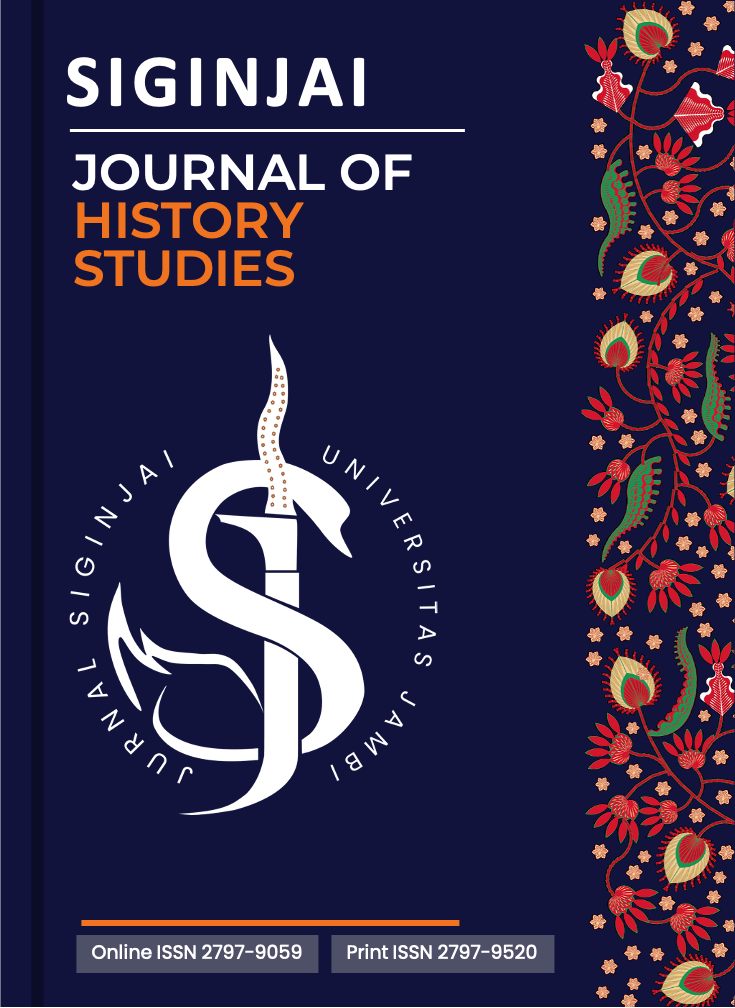Dualism of the Sultanate in Jambi and its Impact on the Economy in the 17th-18th Centuries
DOI:
https://doi.org/10.22437/js.v3i2.26482Keywords:
Dualism, Jambi Sultanate, VOC, EconomyAbstract
As a result of the decline and fall of the Portuguese port of Malacca, old trading centers reappeared, one of which was Jambi. At the beginning of the 17th century Jambi was present as the 2nd richest port in Sumatra. Because of Jambi's reputation, Voc began to be interested in visiting Jambi. The VOC succeeded in establishing cooperative contacts with the Jambi sultanate during the leadership of Sultan Abdul Kahar (1615-1643). The VOC received a permit to open a log cabin in Muara Kumpeh and obtained monopoly rights to the pepper trade in Jambi. The VOC began to control trade in Jambi and intervened politically in the Jambi sultanate. The purpose of this writing is to look at the dualism of leadership that occurred in the Jambi Sultanate as a result of intervention by the Dutch and its impact on the economy. The method used in this paper is the historical method. Starting from the collection of sources, source criticism, interpretation and poured into written works (historiography). The results of this study indicate that the intervention carried out by the VOC succeeded in dividing the Jambi Sultanate into two, namely Upstream and Downstream (1696). The VOC succeeded in overthrew the previous power and replaced the sultan who was pro against them. The VOC's success in monopolizing the pepper trade in Jambi and manipulating the economy in the Sultanate, which unwittingly brought the Jambi Sultanate to decline and economic decline and even nearly falling into poverty.
Downloads
Downloads
Published
How to Cite
Issue
Section
License
Copyright (c) 2023 Penulis memiliki hak cipta atas naskah dan Jurnal Siginjai memegang hak publikasi atau penerbitan

This work is licensed under a Creative Commons Attribution-ShareAlike 4.0 International License.
















